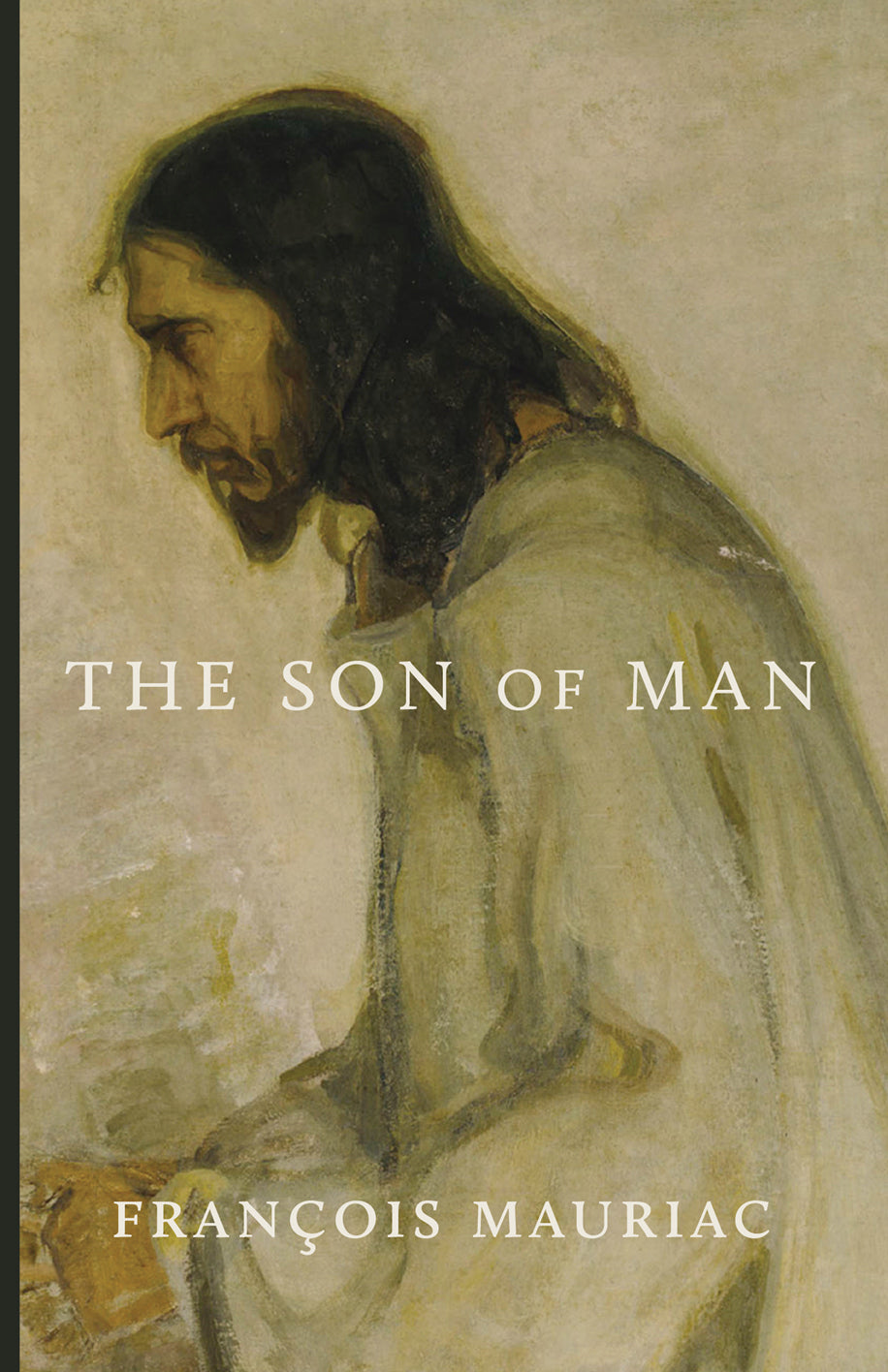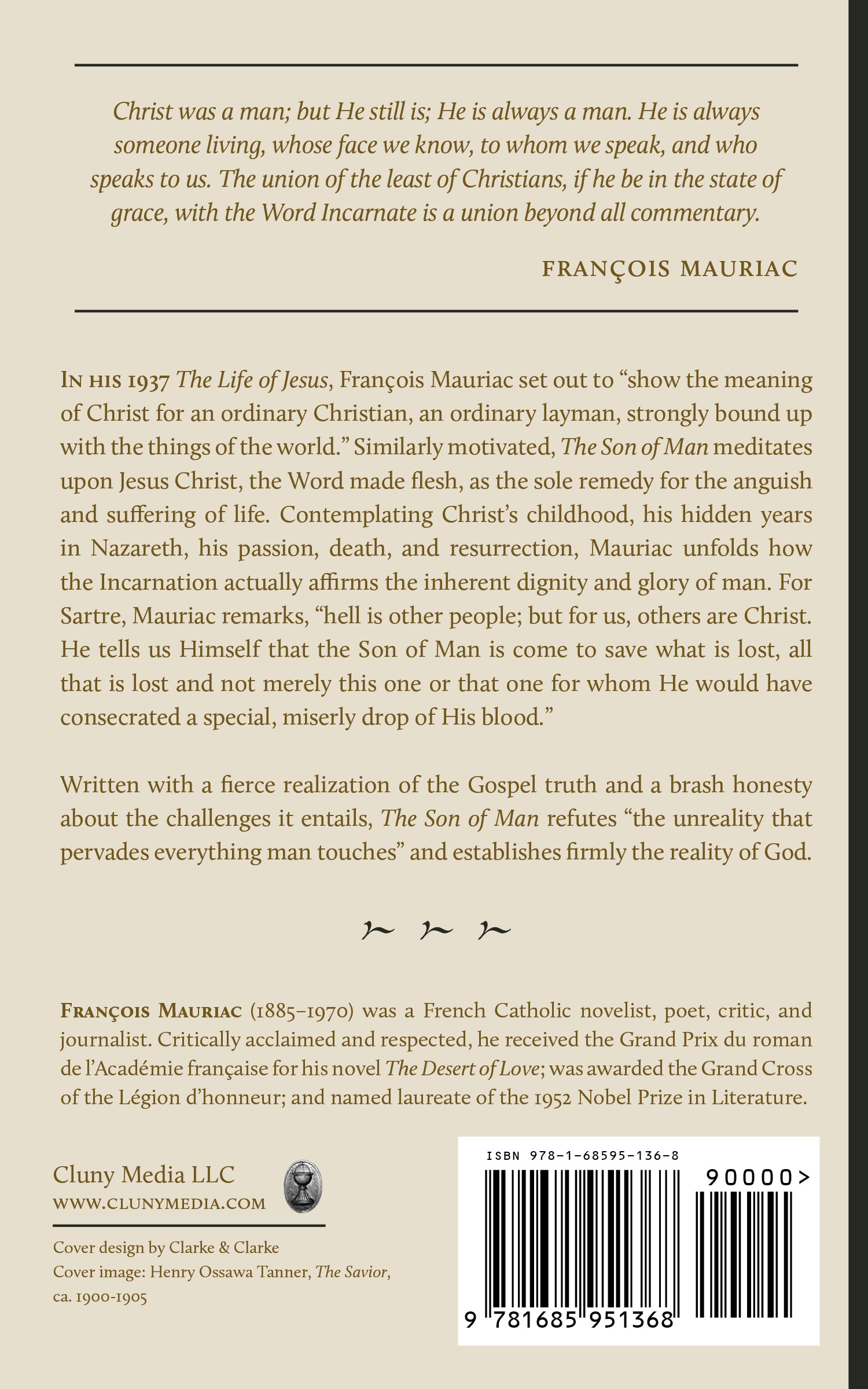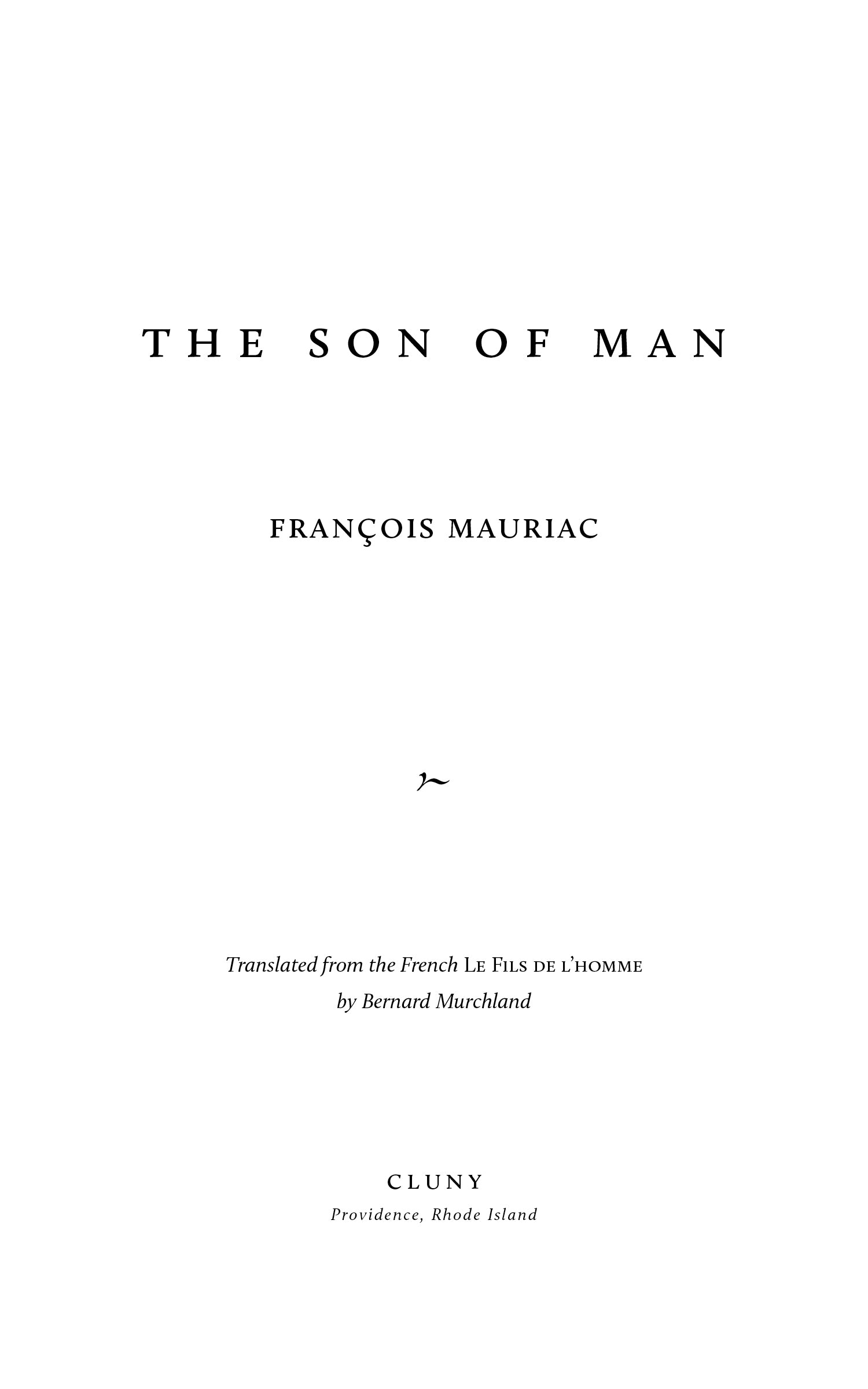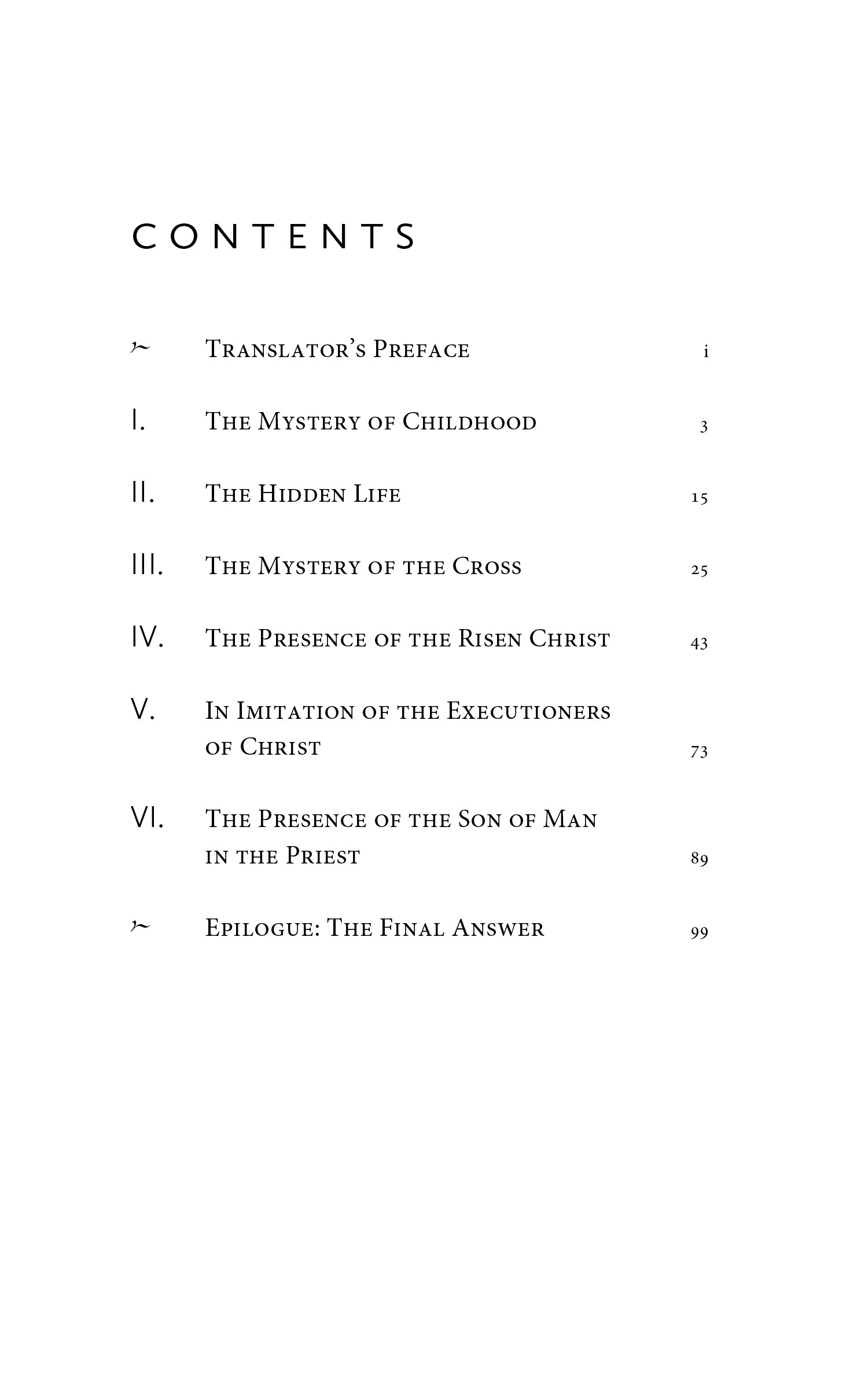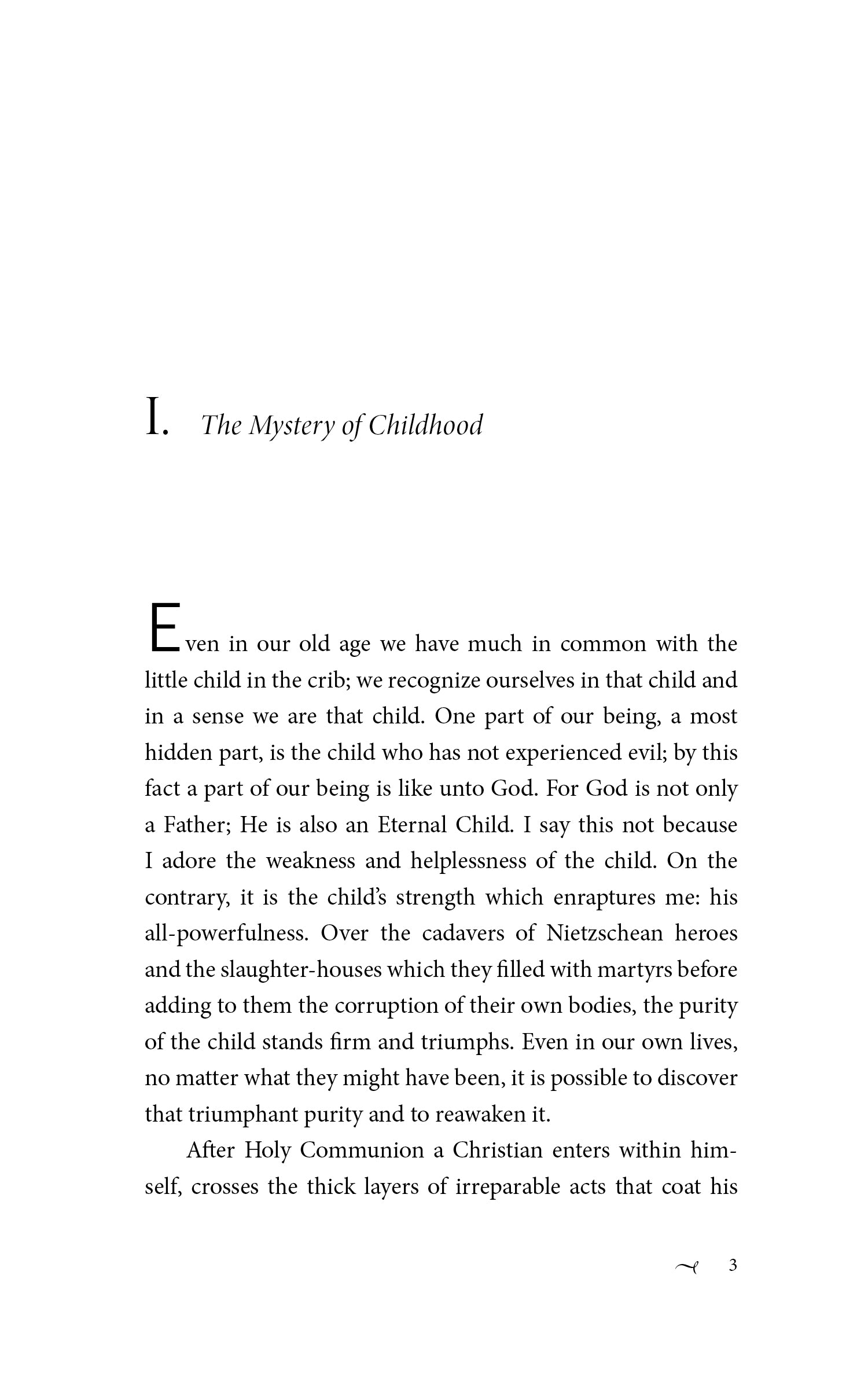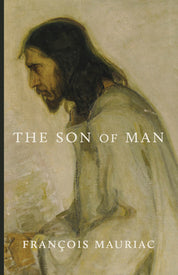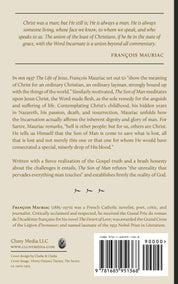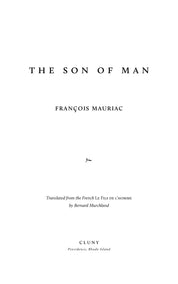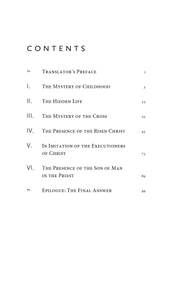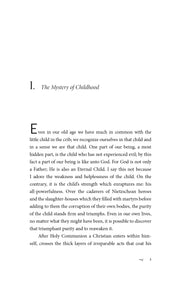The Son of Man
By François Mauriac
In his 1937 The Life of Jesus, François Mauriac set out to “show the meaning of Christ for an ordinary Christian, an ordinary layman, strongly bound up with the things of the world.” Similarly motivated, The Son of Man meditates upon Jesus Christ, the Word made flesh, as the sole remedy for the anguish and suffering of life. Contemplating Christ’s childhood, his hidden years in Nazareth, his passion, death, and resurrection, Mauriac unfolds how the Incarnation actually affirms the inherent dignity and glory of man. For Sartre, Mauriac remarks, “hell is other people; but for us, others are Christ. He tells us Himself that the Son of Man is come to save what is lost, all that is lost and not merely this one or that one for whom He would have consecrated a special, miserly drop of His blood.”
Christ was a man; but He still is; He is always a man. He is always someone living, whose face we know, to whom we speak, and who speaks to us. The union of the least of Christians, if he be in the state of grace, with the Word Incarnate is a union beyond all commentary. ( François Mauriac)
Written with a fierce realization of the Gospel truth and a brash honesty about the challenges it entails, The Son of Man refutes “the unreality that pervades everything man touches” and establishes firmly the reality of God.
* * *
François Mauriac (1885–1970) was a French Catholic novelist, poet, critic, and journalist. Critically acclaimed and respected, he received the Grand Prix du roman de l’Académie française for his novel The Desert of Love; was awarded the Grand Cross of the Légion d’honneur; and named laureate of the 1952 Nobel Prize in Literature.
Paperback: 128pp.
ISBN: 978-1685951368

